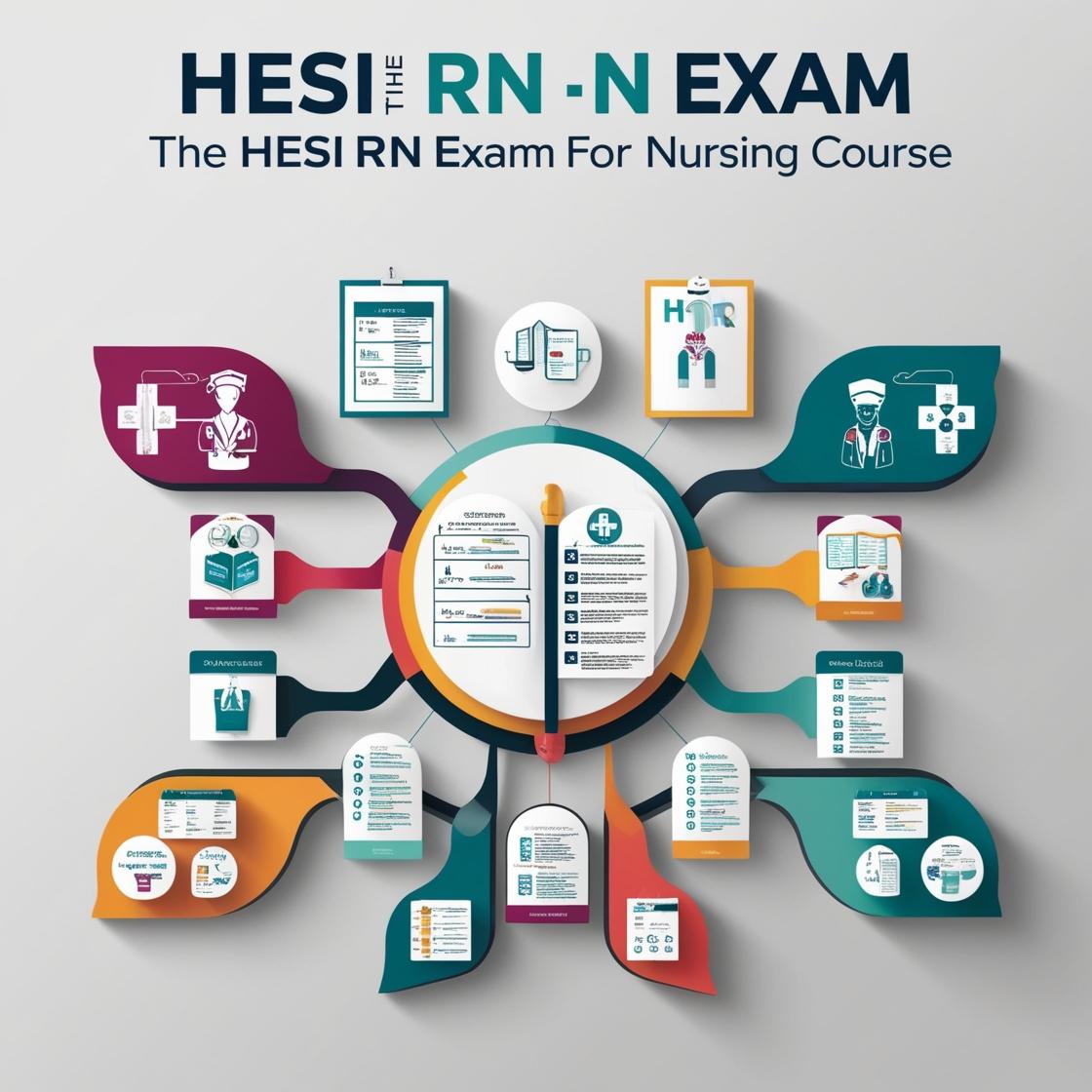HESI RN
Community Health HESI Quizlet
1. The healthcare provider is assessing a client who has just returned from hemodialysis. Which finding requires immediate intervention?
- A. Weight gain of 2 pounds.
- B. Dizziness.
- C. Blood pressure of 150/90 mm Hg.
- D. Heart rate of 88 beats per minute.
Correct answer: B
Rationale: Dizziness after hemodialysis can indicate hypovolemia, hypotension, or other complications that require immediate intervention to prevent further deterioration or adverse events. Weight gain of 2 pounds may not be immediately concerning post-hemodialysis. A blood pressure of 150/90 mm Hg is slightly elevated but may not require immediate intervention unless accompanied by symptoms. A heart rate of 88 beats per minute falls within the normal range and may not be an immediate cause for concern after hemodialysis.
2. A client with a history of coronary artery disease is admitted with chest pain. Which assessment finding requires immediate intervention?
- A. Heart rate of 90 beats per minute.
- B. Respiratory rate of 20 breaths per minute.
- C. Blood pressure of 130/80 mm Hg.
- D. Chest pain radiating to the left arm.
Correct answer: D
Rationale: Chest pain radiating to the left arm is a classic symptom of a myocardial infarction (heart attack) in individuals with coronary artery disease. This finding indicates that the heart muscle may not be receiving adequate oxygen, which requires immediate intervention to prevent further damage or complications. The other assessment findings (heart rate of 90 beats per minute, respiratory rate of 20 breaths per minute, blood pressure of 130/80 mm Hg) are within normal limits and do not suggest an acute, life-threatening condition like myocardial infarction.
3. The healthcare provider is assessing a client who has returned from surgery. Which finding requires immediate intervention?
- A. Heart rate of 90 beats per minute.
- B. Oxygen saturation of 92%.
- C. Temperature of 99°F (37.2°C).
- D. Pain at the surgical site.
Correct answer: C
Rationale: A temperature of 99°F (37.2°C) in a postoperative client requires immediate intervention as it may indicate the presence of infection. Elevated temperature post-surgery can be a sign of surgical site infection or systemic infection, which can lead to serious complications if not addressed promptly. Monitoring and managing a fever in a postoperative client is crucial to prevent further complications. The other findings, such as a heart rate of 90 beats per minute, oxygen saturation of 92%, and pain at the surgical site, are common postoperative assessments that may not necessarily require immediate intervention unless they are significantly out of normal range or causing severe distress to the client.
4. A community health nurse is evaluating the effectiveness of a diabetes management program. Which outcome indicates that the program is successful?
- A. increased attendance at diabetes education sessions
- B. reduced incidence of diabetes-related hospitalizations
- C. higher rates of blood glucose monitoring among participants
- D. greater knowledge of diabetes management techniques
Correct answer: B
Rationale: The correct answer is B: reduced incidence of diabetes-related hospitalizations. This outcome is a strong indicator of successful diabetes management, as it suggests that participants are effectively controlling their condition and experiencing fewer severe complications that require hospitalization. Increased attendance at education sessions (choice A) may not directly correlate with improved health outcomes. While higher rates of blood glucose monitoring (choice C) are important, they alone may not reflect overall program success. Greater knowledge of diabetes management techniques (choice D) is valuable but does not directly measure the impact of the program on health outcomes like reduced hospitalizations.
5. During a prenatal class for expectant mothers, what topic should be included to ensure the health of both the mother and the baby?
- A. importance of taking prenatal vitamins
- B. how to handle common discomforts of pregnancy
- C. preparing for labor and delivery
- D. breastfeeding techniques
Correct answer: A
Rationale: The correct answer is the importance of taking prenatal vitamins. Prenatal vitamins are crucial for the health of both the mother and the baby as they provide essential nutrients required for fetal development. While handling common discomforts of pregnancy (choice B) is important for maternal well-being, it does not directly impact the health of the baby. Preparing for labor and delivery (choice C) focuses more on the delivery process rather than the overall health of the mother and baby during pregnancy. Breastfeeding techniques (choice D) are relevant postpartum, not during the prenatal period, and do not directly impact the health of the baby during pregnancy.

Access More Features
HESI RN Basic
$69.99/ 30 days
- 50,000 Questions with answers
- All HESI courses Coverage
- 30 days access
HESI RN Premium
$149.99/ 90 days
- 50,000 Questions with answers
- All HESI courses Coverage
- 90 days access
